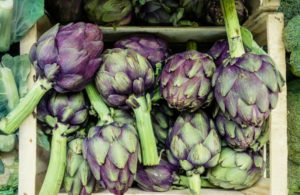Jan 19, 2023
Study: Organic farming, retail sales on the rise in the EU
A new study released this week shows that organic farming is growing in the European Union, where farms tend to be larger than conventional operations and run by younger managers.
The share of EU agricultural land under organic farming increased by more than 50% from 2012 to 2020, according to a market brief on organic farming published Wednesday by the European Commission. Retail sales of organic products in the EU doubled between 2015 and 2020.

Growth in organic sales was particularly strong during the COVID-19 pandemic, according to the brief, as consumers became more health conscious and consumed more food at home or dealt with shortages in conventional food offerings.
France, Spain, Italy and Germany lead the way in organic farming in the EU, accounting for 52% of the total in 2012 and 59% in 2020. The largest share of EU land under was dedicated to permanent grassland (42%), followed by green fodder (17%), cereals (16%), and permanent crops, such as fruit, olives and vineyards (11%).
Despite significant growth, organic animal production still accounts for a small share of total EU animal production, between 1% and 7% depending on the sector, the study found.
Data from the EU Farm Accountancy Network found that organic plant production farms spend less on fertilizers and pesticides than conventional farms. Organic arable crop farms save 75%-100% on plant protection product costs per hectare and 45%-90% on fertilizer costs per hectare compared to conventional farms.
Organic farms have lower yields (between 5% to 30%) on average and, in some sectors, have a greater need for labor to produce the same output as conventional farms. They still generate similar or higher income per worker thanks to higher prices as well as higher levels of EU support, stemming mainly from the Common Agricultural Policy.
In 2020, 61.6% of EU land under organic farming received specific organic support payments from the CAP. Organic farmers in areas with natural constraints could receive additional support, which encourages agriculture in areas with natural handicaps. Further rural development measures also supported the development of organic production, including investments in organic farming practices and aid for the marketing and promotion of organic products.
In 2021, the European Commission adopted an action plan supporting the target of at least 25% of the EU’s agricultural land under organic farming and a significant increase in organic aquaculture by 2030.






